The Forgotten Kashmir, By: Imaam Yakhsyallah Mansur
بِسْمِ اللَّهِ الرَّحْمَنِ الرَّحِيم
The Kashmir Valley, which many explorers call “paradise on earth”, is not enough to make its people live in peace and security. The beauty of nature and the fertility of the land have not made it a blessing for its citizens. In fact, the people of Kashmir feel the pain of the humanitarian crisis due to disputes between leaders that never end.
The Kashmir crisis has been going on since 75 years ago, until today it has not shown any signs of a complete resolution. The people of Kashmir who are suffering are waiting for the attention and assistance of the international community, including the Islamic World, to be able to resolve the crisis that they are still experiencing to this day.
Also Read: The Forty-Four-Days of Glory: Azerbaijan’s Struggle for Justice and Peace
Hundreds of thousands of souls have become victims, tens of thousands of children have become orphans because their parents are gone forever. Meanwhile, on the other hand, women become widows as a result of their husbands not coming home even though it has been months or even years, whether they are in detention or are gone.
They all became victims of the ferocity of the regime’s forces as a result of a deal that never arrived.
The Beginning of the Kashmir Crisis
The Kashmir crisis started with the British who gave independence to India and Pakistan in 1947, but did not give it to the people of Kashmir. As a result, the area has become a bone of contention until now.
Also Read: Palestine Solidarity Month: A Collective Movement for Al-Aqsa and Palestine’s Freedom
India and Pakistan have been involved in major wars at least three times since 1947 due to mutual claims over the Kashmir region. When the two countries had nuclear weapons in 1998, they almost returned to war in 1999 over the dispute over Kashmir.
Meanwhile, violence experienced by Kashmiris has killed at least 47 thousand people since the crisis began. The data does not include people who were declared missing during the conflict. A number of human rights defenders groups and NGOs say the death toll is twice as high as this data.
United Nations Resolution
Since 1 January 1948, the Kashmir crisis has become an international problem under the auspices of the United Nations based on a meeting between the Governor General of Pakistan Mohammad Ali Jinnah and the Governor General of India Lord Mountbatten in Lahore on 2 November 1947 which agreed to hold a referendum for the people of Kashmir.
Also Read: Hassan al-Turabi: A Controversial Thinker from Sudan
The United Nations then formed the United Nations Commission for India and Pakistan (UNCIP) which required India and Pakistan to stop the war, withdraw troops, return refugees, release political prisoners, and quickly hold a referendum on the status of Kashmir. However, the plan for holding the referendum has yet to be implemented.
UNCIP held various meetings regarding the formulation of the cease-fire process. These processes include the ceasefire line, the gradual withdrawal of troops, as well as monitoring the ceasefire process.
The United Nations also sent a special delegation to help resolve the Kashmir crisis. The first UN representative in 1949, AG L McNaughton brought a proposal suggesting that both countries demilitarize and ensure that a referendum was held. However, the proposal was rejected by India.
In 1950 the UN sent Sir Owen Dixon to meet with Indian and Pakistani officials to return to find a solution. Dixon also brought a proposal that suggested holding a referendum only be carried out in the troubled area (Valley of Kashmir), and other areas to make their own decisions to join India or Pakistan.
Also Read: Who Exactly is the RSF Group Shaking Sudan?
The UN again sent its representative, namely Frank Graham, to resolve the conflict within three months. But the mission has not been successful. Furthermore, in 1957 the UN again sent its representative, namely Gunnar Jarring, but his mission also failed.
Since the crisis occurred, the United Nations has issued 11 resolutions for Kashmir. However, this has not been effective in resolving the conflict to this day.
Solutions Offered
Truly, every soul born on this earth has the right to live, without torture and degrading treatment, without discrimination and receive equal treatment before the law. This is all guaranteed in Human Rights which was agreed upon by the international community on December 10, 1948 in a treatise of the Universal Declaration. So, it is the duty of all mankind to make this a reality, especially for the people of Kashmir.
Also Read: The Two-State Solution (Palestine–Israel) in Historical Perspective
On October 4-8 2019, several scholars, NGOs and members of parliament from Southeast Asian countries, led by Dr. Mohd Azmi Abdul Hamid (president of MAPIM) Malaysia, was invited by the Government of Pakistan to visit Kashmir as part of their concern for their brothers and sisters who are suffering in the region. From Indonesia, the writer is the only representative of Indonesia in the mission. From the results of the visit, the authors conclude, to resolve the Kashmir crisis at least three things need to be done:
Humanitarian Approach
The fact that in the Kashmir region there are residents who are Muslim and Hindu, the humanism approach (humanity) is the most possible for that region. The humanitarian approach in question is that assistance must be given to anyone regardless of ethnicity, religion, race and class. Anyone who needs it, then they should be a priority in getting help and assistance.
Anyone who provides assistance, should not be selective according to their tastes or just agree with their group, but must be thorough, fair and uphold human values themselves.
Also Read: Enchanted by K-Dramas, Dragged into Slander: Time for Muslims to Rise!
Welfare Approach
The people of Kashmir have long felt unremitting suffering, so one of their urgent needs is to achieve prosperity for all of its inhabitants. So, what are the basic things in realizing prosperity?
First, is the health facility. This is absolutely necessary for the people there. Being in a conflict zone is sure to have many injured, even killed. So, health facilities are the most important.
Second, apart from health, education is also an urgent matter for the people of Kashmir. The younger generation must have sufficient education. So that they can think ahead in resolving a crisis, without having to prioritize violence, whether physical, verbal, or intimidating terror.
Also Read: Creating Opportunity and Avoiding Misery; Lesson Learn on Waste Recycling Issue
Political Approach
This political approach is also the key to solving the Kashmir crisis. Kashmiri intellectuals must lift their pens, voice the aspirations of their people, tell the world what is really happening in their region, without giving up hope.
Voice to the world about peace as the main solution to solving the crisis, and this can be obtained if there is freedom for the people of Kashmir. The Kashmiri people must be given the freedom to choose, determine their own destiny, choose their own path, without intimidation and intervention from any party.
Intervention and intimidation will only lead to acts of violence and of course the victims will be innocent civilians. They will continue to be the target of violence by the authorities on the grounds of maintaining national security stability.
Also Read: Between the Treaty of Hudaybiyyah and Ceasefire in Gaza
People know better about where they should join. Who would they partner with, and which of the country’s leaders would they trust. This conclusion is described by the author in the book “Kashmir Membara dan Solusinya”. (T/RE1)
Mi’raj News Agency (MINA)
Also Read: Peace Cannot Be Achieved Without a Palestinian State






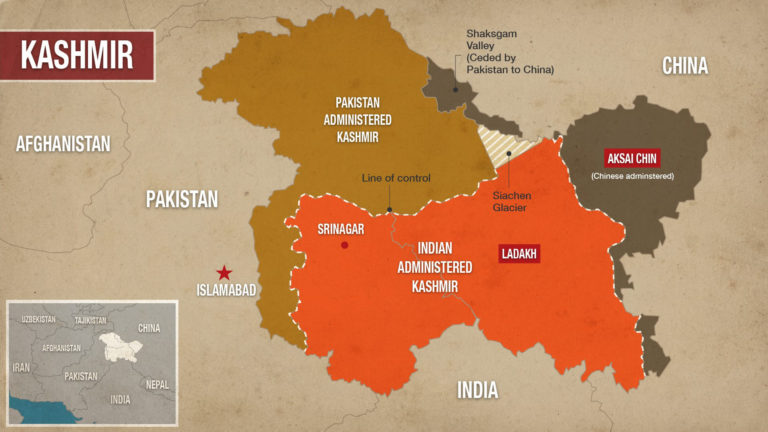

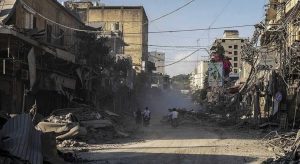


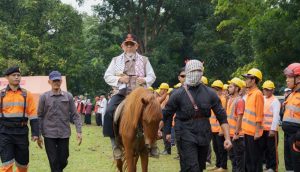
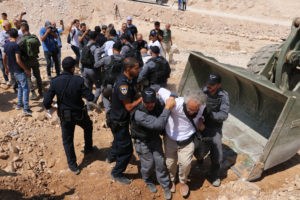
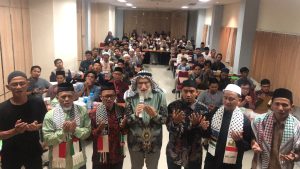


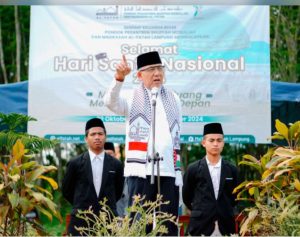
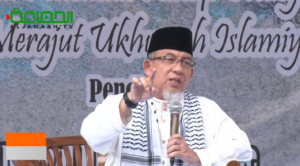
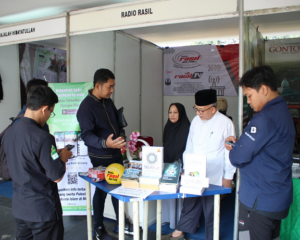
















 Mina Indonesia
Mina Indonesia Mina Arabic
Mina Arabic